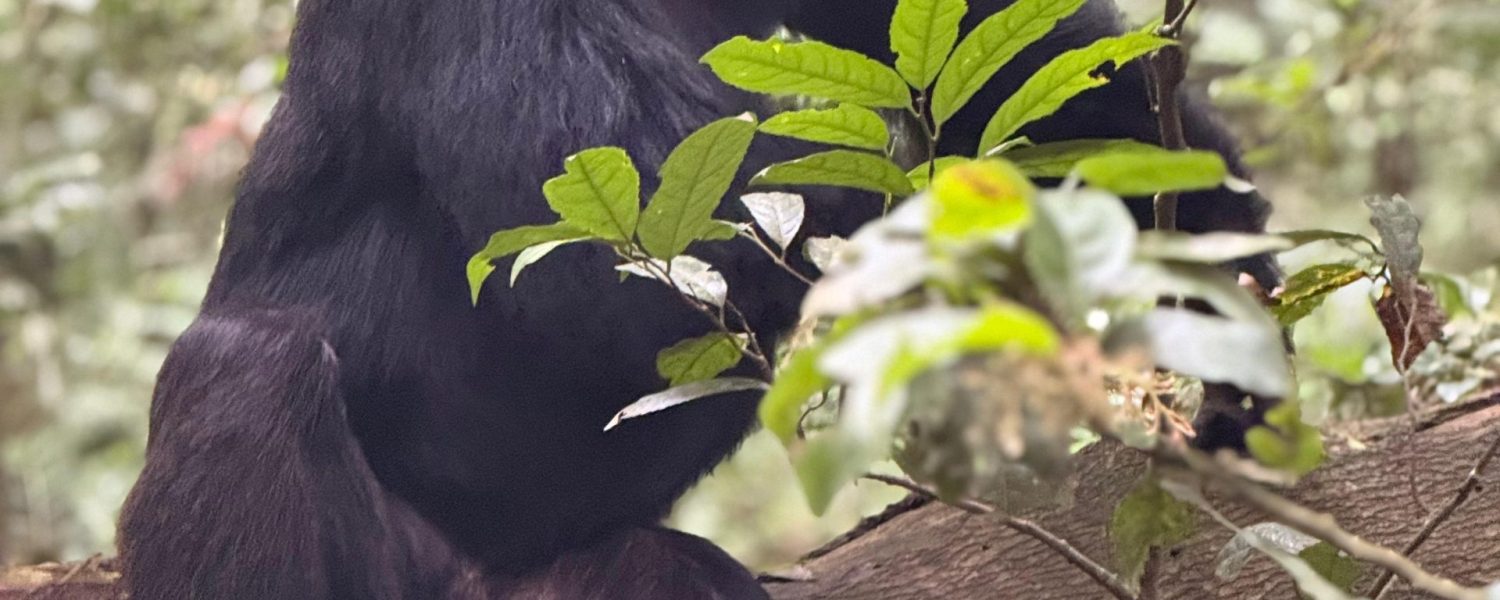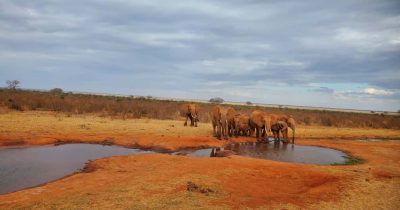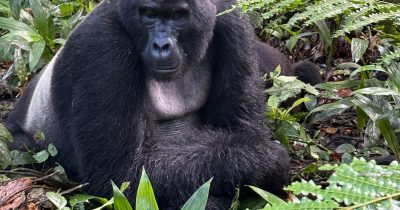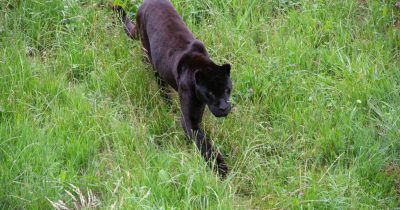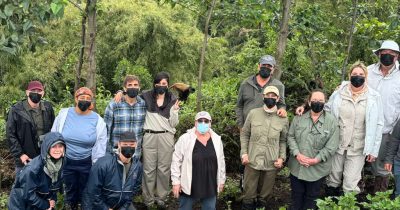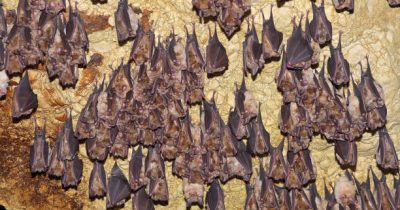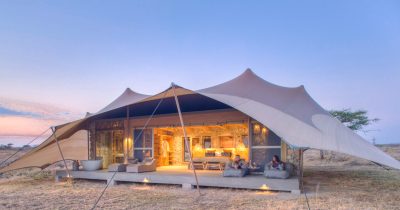Chimpanzee Trekking During Rainy Season
Chimpanzee trekking during the rainy season offers visitors a unique opportunity to explore chimpanzees on a budget. The rainy season, which is also regarded as off/low season, is an ideal time of the year for backpackers/budget travelers. Like the dry/sunny season, the rainy season also has its cons and pros for guests on chimpanzee trekking to put into consideration.
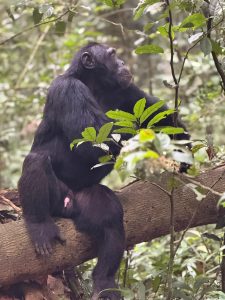
The pros of chimpanzee trekking during the rainy season
Chimpanzee treks during the rainy season can be enjoyed safely. Among the benefits guests can enjoy when they embark on chimpanzee trekking during the rainy season include;
Encounter Chimpanzees with Ease
Chimpanzee tracking during the rainy season makes locating the chimpanzee community in their habitat easier. The presence of an abundant food supply- fruits, leaves, and others often keeps chimpanzees around rather than frequently moving long distances trying to find what to eat. With a forage supply, visitors will likely spend a shorter time locating a community of chimpanzees.
Fewer Guests
The rainy season is typically the off/low season. The number of visitors drops across chimpanzee trekking destinations, and no crowds are experienced on a chimpanzee trek during the rainy season, as is often the case with the dry season.
Enjoy an affordable chimpanzee trekking tour.
The rainy season is the perfect time of the year to enjoy abundant discounted offers. It is the best period of the year to book a budget-friendly chimpanzee tracking tour. During the rainy season, most of the lodges in the chimpanzee trekking destinations are forced to offer discounted rates for their accommodation services as an alternative to attract more guests.
The cons of trekking with chimpanzees during the rainy season
Muddy/Slippery Terrains
Heavy rains make navigating the chimpanzee habitat challenging during the rainy season. The forest floor becomes slippery and muddy. Navigating through this environment tends to be trickier and often slows your adventure.
Heavy rains with disruptions
The rainy season often brings heavy rainfall, frequently disrupting regular chimpanzee trekking. However, some destinations receive shorter rains, and guests can proceed with the trek to see chimpanzees.
When does the rainy season occur?
The rainy season occurs twice yearly, with the longest recorded from March to May. The shortest rainy/wet months start in October and November.
Preparing for the chimpanzee trek during the rainy season
Any primate enthusiasts interested in trekking chimpanzees in Uganda/Rwanda during the rainy season should consider preparing adequately. This should involve packing right for your primate adventure, considering essentials such as waterproof hiking boots, long trousers, a daypack, snacks, insect repellents, a camera, long-sleeved shirts, a rain jacket, a sweater, a first-aid kit, a pair of binoculars, gardening gloves, sunscreen, and more.
Where to go to track chimpanzees
Chimpanzee trekking during the rainy season can be done in any of Uganda’s or Rwanda’s destinations. Uganda’s popular chimpanzee tracking destinations include Kibale National Park, Budongo Forest, Semuliki, Kyambura Gorge, and Kalinzu Forest Reserve. Chimpanzee trekking in Rwanda occurs in Gishwati-Mukura and Nyungwe National Parks.
Kibale National Park
Kibale National Park is Uganda’s premier destination for chimpanzee trekking and holds over 13 primate species. Out of the 13 primates, Kibale is inhabited by about 1500 chimpanzees, with about four habituated communities for you to track. The available chimpanzee communities in Kibale include Kanyanchu, Sebitoli, and Kanyawara. The other chimpanzee community holds about 200 chimpanzees.
The key area of interest for chimpanzee tracking in Kibale is the Kanyanchu, which is found in the heart of the park. Created in 1993, Kibale National Park lies at 1100 to 1600m.
Kibale is 795 sq. km and protects more than chimpanzees. The park also shelters primates like vervet, red-tailed, red-colobus, blue, and black and white colobus monkeys. During the guided chimpanzee tracking, visitors can watch a wide array of these primates and other species, including bird species.
Chimpanzee permit rates for Kibale range from USD 250 per person for non-residents, USD 200 (residents), and UGX 180,000 per person for East African citizens.
Where to stay in Kibale Forest before/after trekking chimpanzees
After/before trekking with Kibale National Park, places to stay include Top of the World Lodge, Chimpundu Lodge, Kibale Forest Camp, Kibale Lodge, Turaco Treetops, Primate Lodge, Isunga Lodge, Kyaninga Lodge, Chimpanzee Forest Guesthouse, and Papaya Lake Lodge. Other accommodation options include Ndali Lodge, Rweteera Safari Park, Isunga Lodge, and Chimp Nest Lodge.
Access to Kibale Forest National Park
You can drive from Entebbe or Kampala to Kibale for about 5-6 hours. The Mityana-Mubende-Fort Portal tourism city-Kamwenge route offers the best access to Kibale. It is the shortest access route, but visitors can also take the Kampala-Mbarara-Kasese route, which is the longest.
Kyambura Gorge
Kyambura Gorge is a special place to visit to explore chimpanzees in Uganda, and chimp permits are available for booking at only USD 100 per person. The spectacular Kyambura Gorge is in Eastern Queen Elizabeth National Park, Western Uganda. This park features an exceptional ecosystem, including the Kyambura River and lush forest, where chimpanzees and other primates reside.
Kyambura Gorge chimpanzee trekking tours offer complete immersion into the tropical forest. The trek includes sightings of chimpanzees and other primates, including red-tailed monkeys, olive baboons, colobus monkeys, and vervet monkeys.
Where to Stay in Kyambura
After/before your chimpanzee trek in the Kyambura Gorge, the ideal places to retire for a night include Kyambura Gorge Lodge, Buffalo Safari Lodge, Aardvark Safari Lodge, Bulbul Safari Lodge, and many others.
Budongo Forest
Lying on the Escarpment of the Northeast of Lake Albert, Budongo Forest is a lush natural forest reserve. Budongo is an extensive forest reserve, home to a massive profusion of East African mahogany trees and chimpanzees. Over 800 chimpanzees reside in the 825 sq. km Budongo Forest. The available habituated chimpanzee communities to explore exist in the Kaninyo-Pabidi section. At the same time, the rest include the Waibira and Sonso communities, although these have not yet been opened for tourism. Waibira and Sonso are available for research purposes.
Beyond chimps, Budongo also contains other species, most of which can be sighted on a guided chimpanzee trek. This forest reserve also protects over 20 amphibian species, 130 moths, 292 butterfly species, 360 species of birds, and many tree species. The unique birds include lemon-bellied crombec, chestnut-capped flycatchers, yellow-footed flycatchers, Ituri batis, white-thighed hornbill, and black-eared ground thrush.
In Budongo Forest, the key areas for you to consider for overnight stay include Budongo Eco-Lodge, Kabalega Resort, Bomu Community Bandas, Pabidi Lodge, and other nearby options.
Nyungwe Forest National Park
When you cross to Rwanda, Nyungwe is the leading chimpanzee trekking destination and has 500 chimpanzees. Within the spectacular Nyungwe Forest, tourists can explore two habituated chimp communities. These are available in the Cyamudongo Forest/Uwinka sectors. However, there are also newly habituated communities, including the Gisovu chimp community. To track Nyungwe Forest chimpanzees, a valid permit is required, which can be obtained for USD 150 per person, and the park entrance fee is USD 100.
While in Nyungwe, expect not only chimpanzee trekking but also guided forest walks, canopy walks, bird-watching, and colobus monkey tracking. You can get to the Nyungwe Forest National Park in a 4×4 safari car and start your journey from Kigali.
Chimpanzee trekking during the rainy season is possible but requires adequate preparation, including packing the right items. Book your chimpanzee trek with Native Africa Tours and enjoy the best budget-friendly primate adventure.
